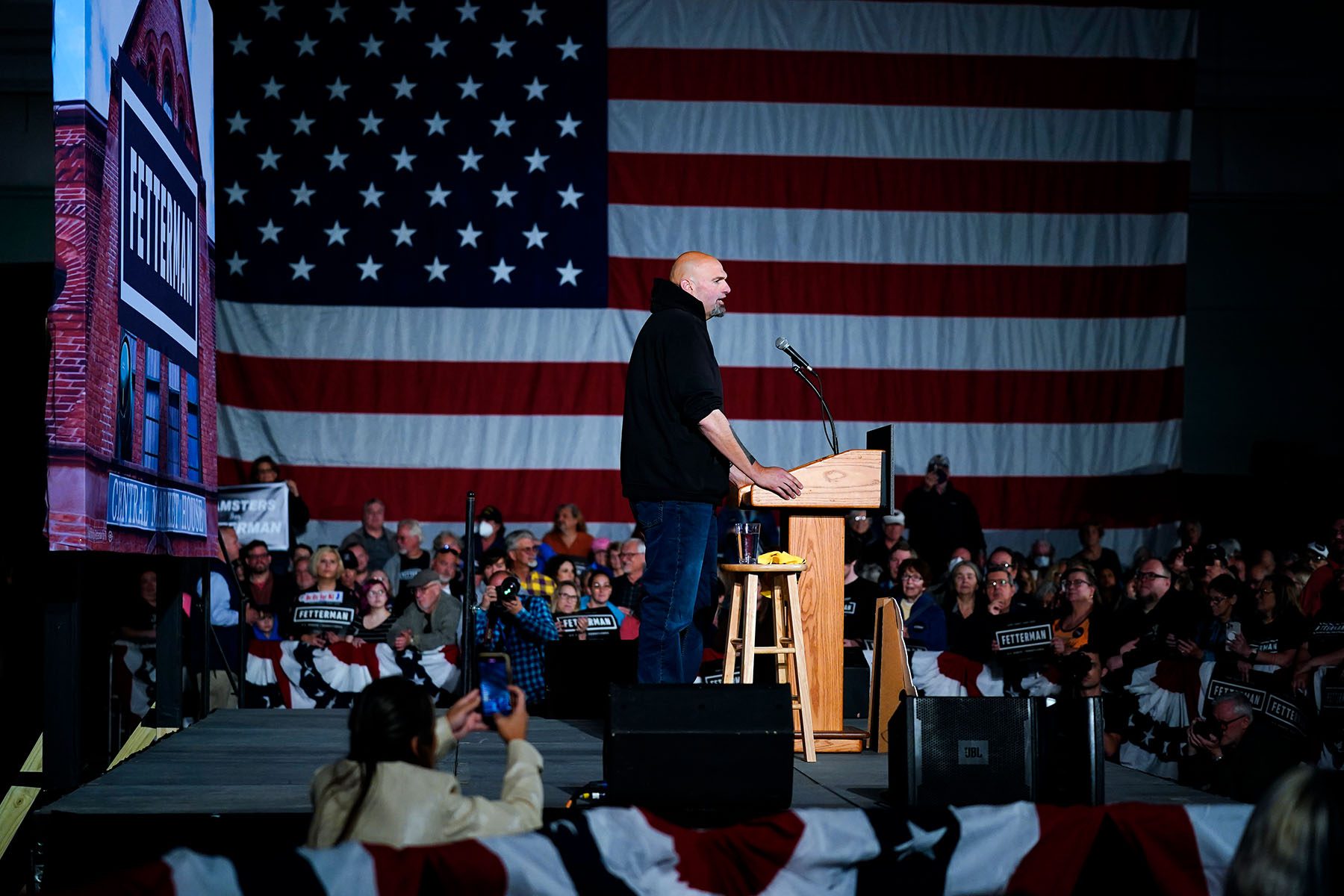When Illinois Gov. J.B. Pritzker addressed the crowd in Chicago last month, his message was clear:
A vote for his reelection was a vote to protect democracy — and, critically, to protect abortion rights. A vote for his opponent was a vote for the opposite.
“To all the right-wing officeholders who have been cheering on the January 6 insurrectionists, making it harder to vote, lauding the Supreme Court for taking away reproductive rights and rallying behind a national abortion ban — we’re coming for you,” Pritzker, a Democrat, said to an audience at the University of Illinois at Chicago.
In his brief remarks, the governor took note of abortion and reproductive rights four times – just as many times as the woman he was introducing: Vice President Kamala Harris, who had used her first campaign stop of the midterms to encourage people to vote Pritzker back into office.
Pritzker has made abortion a signature issue: tweeting repeatedly about the issue for months, appearing on national news the day after a draft leaked indicating the Supreme Court would overturn Roe v. Wade and swiftly criticizing the court’s decision when it did finally strike down abortion rights. It’s not a new issue for him, but the way it has dominated his reelection effort marks a stark contrast to the campaign he ran in 2018, in which he focused largely on backlash to then-president Donald Trump.
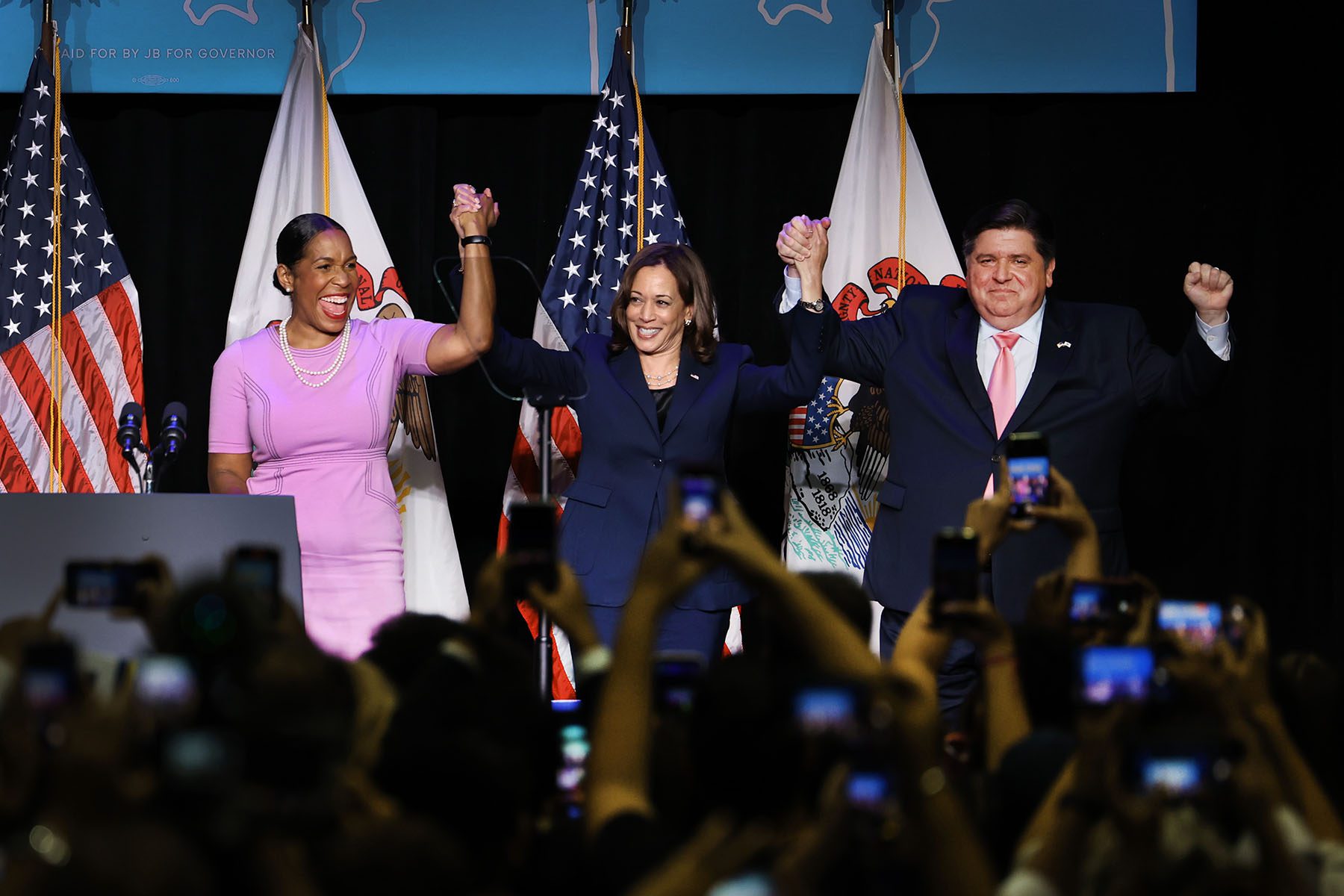
The Supreme Court’s decision to overturn Roe v. Wade has made abortion one of the defining issues of this year’s midterm elections, with Democratic candidates around the country campaigning on abortion rights. In Congress, it’s mostly Democratic women who are emphasizing abortion access. On the other end of Pennsylvania Avenue, Harris has taken the lead. But on the trail, men are joining women in making this a signature campaign issue.
It’s a shift. In the past, Democrats in general were far less likely to campaign on abortion rights — which have long been seen as a women’s issue — in part because their voters were less likely to prioritize the issue when casting a ballot.
Some Democratic women, like Michigan Gov. Gretchen Whitmer, were campaigning on access to abortion even before the Supreme Court’s ruling. And while in recent election cycles it was more likely that Republican candidates who opposed abortion would embrace it as an issue, among Democrats it was more likely to be women — including Harris when she ran for president and 2016 presidential candidate Hillary Clinton — who talked about it.
With Roe overturned, the dynamic is different. Among Democrats, men candidates, in particular, may face a particular pressure to clarify their stance on the issue, noted Kelly Dittmar, director of research at the Center for American Women and Politics.
“They may need to do more reassurance than women. We talk a lot about the bias for men that works for men in campaigns — which is the assumption of expertise and qualifications writ large,” she said. “But on abortion specifically … if you ask who’s most likely to be an expert on this issue, people will assume women and say women.”
Beyond Pritzker, Minnesota Gov. Tim Walz and Wisconsin Gov. Tony Evers — both Democratic incumbents in purple states — have highlighted their opponents’ stances on abortion. Evers released an ad October 4 criticizing his Republican opponent, Tim Michaels, for a suggestion that he would support abortion bans without exceptions for cases of rape or incest. On August 25, the day Texas’ abortion trigger ban took effect, Democrat Beto O’Rourke released his first TV ad of his gubernatorial campaign attacking Republican Gov. Greg Abbott for his efforts to curtail abortion rights.
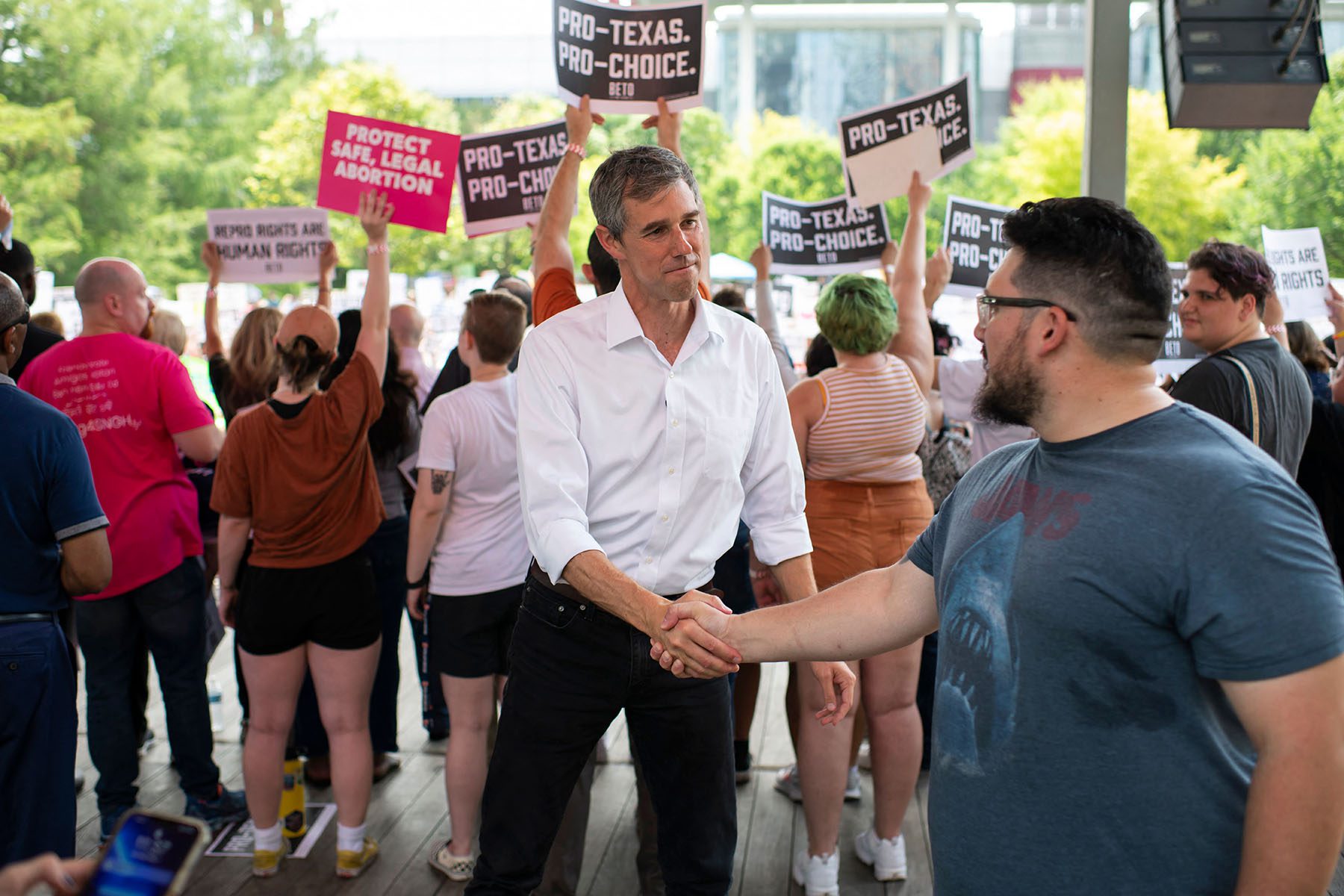
While the president’s party often loses seats in midterm elections, and President Joe Biden’s approval ratings have hovered between 40 and 45 percent lately, Democrats hope voters’ anger over the Supreme Court’s ruling will help them next month.
In New York, Congressman Pat Ryan, who won his special election earlier this summer, soon after Roe was overturned, focused his campaign entirely on abortion — a strategy to which he has credited his win.
And in the race to control the Senate, abortion has emerged as a key issue. That’s in part because Minority Leader Mitch McConnell has suggested that a national abortion ban would be on the table if Republicans regain the Senate majority.
Mark Kelly, the Democratic incumbent in Arizona, has repeatedly criticized his opponent, Blake Masters, who previously endorsed policies that would treat abortion as murder. Masters has since distanced himself from that view, more recently voicing support for a national ban on abortion at 15 weeks.
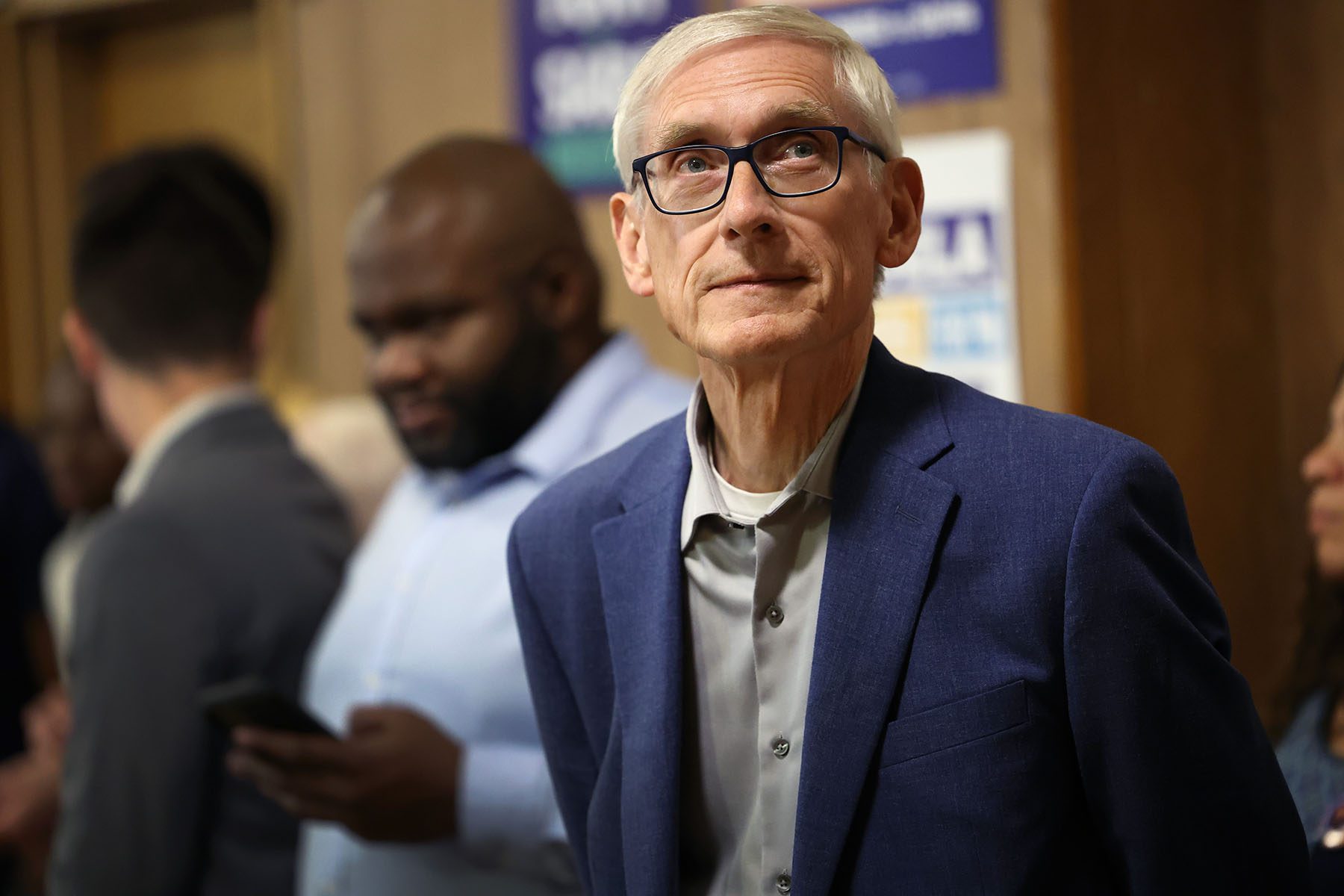
Mandela Barnes, the Wisconsin lieutenant governor challenging Republican Sen. Ron Johnson, put out a TV ad October 3 emphasizing Johnson’s views on abortion. In Wisconsin, abortion is largely unavailable right now, thanks to bans on the procedure that predated Roe v. Wade and that were never repealed — an issue Barnes is highlighting in a campaign tour across the state. The race is incredibly close. A recent CBS poll showed that three-fourths of Barnes supporters say they are supporting him specifically because of his stance on abortion.
In Pennsylvania, Democratic nominee John Fetterman devoted a September rally to abortion, arguing that Republican Mehmet Oz would be a “rubber stamp” for a national abortion ban. His home state has emerged as a major access point for abortion. Pittsburgh clinics are experiencing weeks-long wait times for appointments, as people travel from Ohio, West Virginia and Kentucky for abortions.
And in Ohio, Rep. Tim Ryan, the Democrat running for Senate, has attacked his opponent, venture capitalist J.D. Vance, on abortion — using debate time to criticize Vance by linking him to a national abortion ban.
Part of the reason Democratic men have joined Democratic women in embracing abortion access as an issue is obvious: In general, Democratic stances on abortion are more popular than Republican ones, and laws completely banning access to the procedure poll poorly. Bans without exceptions for rape and incest are especially unpopular, and a proposed national ban on the procedure quickly sparked criticism across the political aisle.
The assumption that women have more expertise than men on abortion shapes how men are able to discuss the issue as well, Dittmar said. Abortion affects people of all genders. But because voters may not trust men’s expertise on this issue, candidates often cite how abortion bans affect other people in their lives — mothers and wives, for instance. Others may simply incorporate women’s voices in their TV ads.
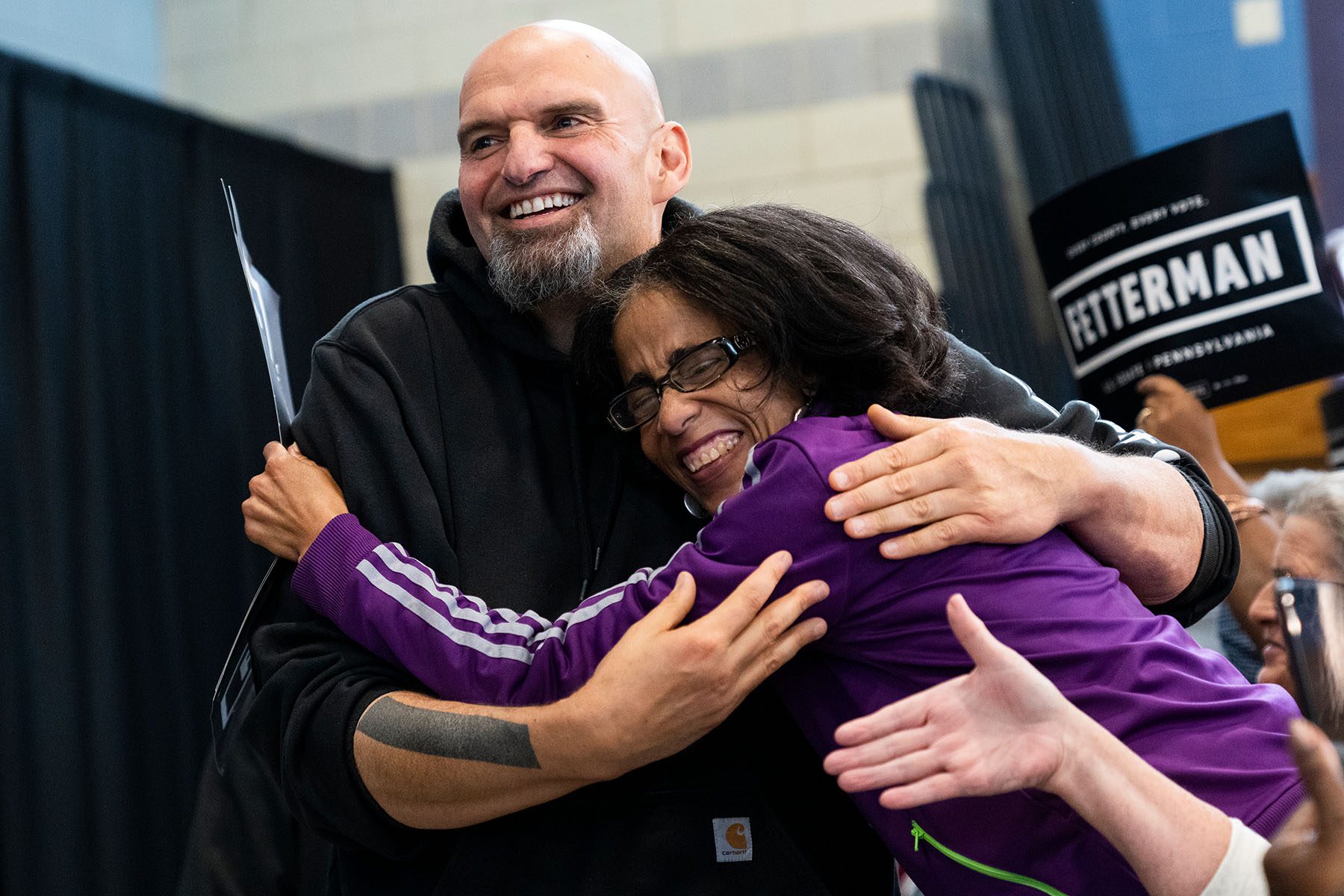
Pritzker, for instance, has repeatedly cited his mother, who he recalled took him to abortion rights marches when he was a child. Barnes has also spoken about his mother, who had an abortion before he was born. Evers never even appears in his recent abortion ad. The 30-second TV spot shows photos of young girls and is narrated by a woman’s voice. Fetterman’s online videos emphasizing abortion rights largely feature endorsements from women, and a recent abortion-centric ad from Orange County’s Jay Chen, running in the competitive 45th Congressional District, also relies on a woman narrator. O’Rourke does not appear until the end of his abortion-related TV ad; the clip is narrated by a variety of women.
The strategy marks a contrast to the ads women are running in similarly competitive races. Sen. Maggie Hassan, of New Hampshire, has also touted her stance on abortion rights — but her TV ad on the issue simply shows the senator talking to the camera. Val Demings, a member of the U.S. House who is challenging Florida Sen. Marco Rubio, has taken a similar approach.
That’s no accident, Dittmar said.
“It demonstrates their recognition that the people who will understand this most innately and be most trusted messengers are women,” she said. “For women candidates, they have the benefit of often being the narrator and trusted messenger.”
